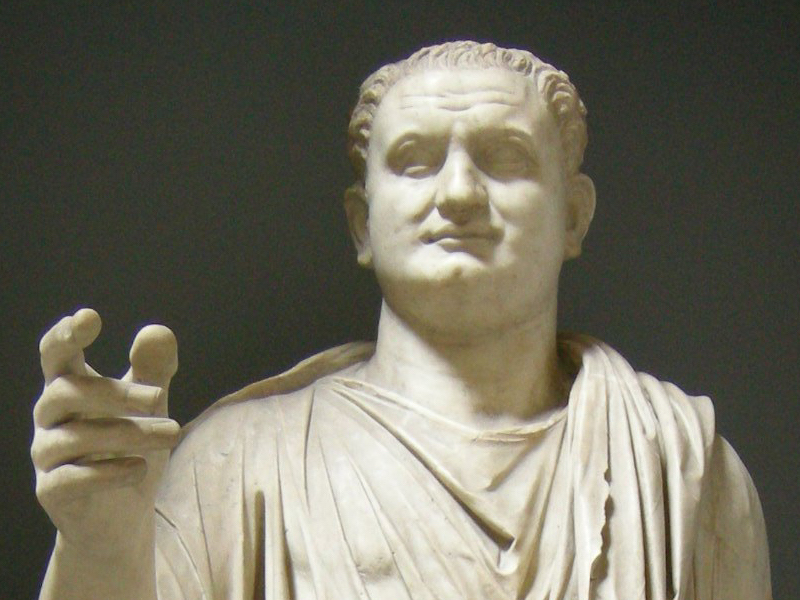Titus: Continuing Where His Father Left Off
Episode #8 of the course The mad world of the Roman emperors by James Wareing
Today’s lesson brings us the Emperor Titus. Titus, albeit in a short reign, largely continued in the footsteps of his father, continuing many of his policies and enjoying popularity with the senate and people alike. He was renowned for his good looks, and his affable personality gave the people an emperor with whom they could associate more than the many who had preceded him.
Suetonius’s description of him leaves an image of a character that many would aspire to. He describes him as a “handsome man, with no less dignity than grace” and as possessing an “extraordinary memory,” as well as skill in all the arts, from speeches to singing and horse-riding.
An Emperor of the People
When the Colosseum opened in AD 80, Titus spoiled his people with 100 days of extravagant games and spectacles to honor the new amphitheater. This included reconstructions of sea battles and, according to Suetonius, 5,000 wild beasts in one day. This went down particularly well with a Roman populace who were facing economic struggles, as Titus continued the work of his father in trying to recover Rome’s financial situation.
His reign will also be remembered for the eruption of the volcano Vesuvius. The disaster destroyed the cities of Herculaneum and Pompeii, burying them in ash and killing many of the inhabitants before they had a chance to escape. The buildings have largely survived to this day, remarkably preserved by the ash and pyroclastic material, and provide a fascinating insight into Roman life. Titus’s response to this disaster can be neatly contrasted with that of Nero to the great fire of Rome. In fact, before his reign, many had thought that he may become just like Nero, as he had developed a reputation for lavish partying. However, while Nero saw the fire as a chance to rebuild the city with a giant house and statue for himself, Titus was generous with his financial support for the cities. Furthermore, Rome experienced yet another fire, as well as a plague during Titus’s reign, with his support again unfailingly generous to support the recovery of the city.
Displays of Remarkable Generosity
When he discovered a plot of two men to seize the throne, he acted with remarkable clemency by sparing them of their death and sending messengers to their mothers to assure them that their sons were safe. He then even went so far as to invite them to the gladiatorial games and to inspect the gladiatorial swords.
His generosity extended to how he treated the Roman people on a personal level. He often refused gifts and became the first emperor to honor the favors granted to people by previous emperors. He even sometimes used the baths with the common people, a far cry from the activities of some of the previous more aloof and paranoid emperors.
Titus’s Death and Legacy
One plot he could not placate, though, was that of his brother, Domitian. Titus died after just two years of rule, in the same farmhouse in which his father passed away. Domitian was rumored to be the man behind his death, but it may have been a rare case of natural causes bringing about the death of an emperor. Titus’s legacy still lives on today in the form of an arch, dedicated to him by his successor, Domitian, which remains at the entrance to the Roman Forum. In tomorrow’s lesson, we shall learn about his successor and a man who did not continue in his father’s footsteps.
Learn Something New Every Day
Get smarter with 10-day courses delivered in easy-to-digest emails every morning. Join over 400,000 lifelong learners today!
Recommended book
Share with friends

